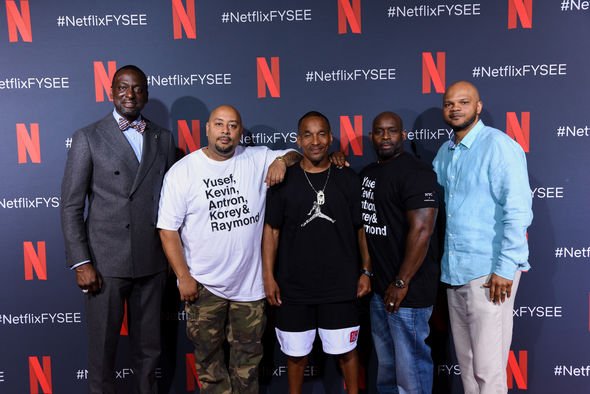This piece was submitted from a member of our enthusiastic community of readers. If you’re interested in sharing your opinion on any cultural, political or personal topic, check out our how-to post to learn more.
Ava DuVernay’s drama miniseries When They See Us so powerfully and convincingly portrays the injustices against the black and Latino boys dubbed the Central Park Five that it comes with a warning label from the director, herself: Watch at your own pace.
Dehumanized and devalued by New York City’s police and the prosecutor’s office, the five wrongfully accused and convicted young men see their futures put through a shredder. The system that entrapped them, the very one that blatantly discriminates and sees black and brown people as criminals, was designed to brand them with that title for life. Their re-entry into society was stymied by exclusionary hiring practices and government policies that stacked the odds against them, putting at least one of them back behind bars.
When They See Us is so real that some people are afraid they will be too triggered to watch it. I can understand the visceral reactions to the series I’ve read on social media. It is painful to see the dramatization of these young men’s civil liberties being so egregiously violated. How they spent their formative years behind bars for a crime they didn’t commit. The way the lead detective described them as animals and built her case against them not based on evidence but, instead, on her own biases.
But we must watch When They See Us because what happened to those young men could happen anywhere, to anyone. And it’s three times more likely to happen to black and brown young men than their more affluent, white counterparts.
America cannot afford to turn away from this series or the important discussions it precipitates. We must allow ourselves to feel the outrage and be uncomfortable long enough to awaken our consciousness to the fact that what happened to the Five isn’t an isolated incident – Black and brown people’s futures are destroyed every day by an unjust justice system. And sometimes, it doesn’t take a conviction to exclude a person from a job or educational opportunity; all it takes is an arrest.
One in 3 Black men say they’ve experienced a non-traffic related arrest by age 24. Nearly 80% of youth who interact with the juvenile justice system and the adult criminal court system become justice-involved annually as a result of an arrest. According to the FBI, more than 2.5 million adolescents and young adults between 16 and 24 years old are arrested annually. An arrest while in high school doubles a student’s chances of dropping out. The Alliance for Excellent Education’s Impact of Education on Crime Reduction and Earnings report found that 56% of all federal inmates, 67% of state inmates, and 69% of all local jail inmates nationwide never graduated from high school.
Also, an arrest or conviction reduces a person’s chance of getting a callback for a job by 50%. Though nearly one-third of arrests in the FBI database aren’t tied to a court case or conviction, it’s enough for some employers to take a pass on an enthusiastic worker who’s trying to rebuild their lives.
Once upon a time, that described Maurice Hayes. The Chicago native spent 17 years in prison on a felony conviction. Upon his release, Hayes entered a voluntary halfway house program that provided housing, clothes, food and employment training. In prison he’d received certifications in construction and electronic technology. But on the outside, his lack of experience and prior conviction made it difficult for him to find employment in those fields.
Hayes says he had no problem checking “the box” that he was a convicted felon, writing in the comments, “Will explain in my interview.”
“I wanted to work and actively sought employers who would be willing to take a chance on me,” said Hayes.
He found a fit with Epic Burger. Hayes was promoted to manager within three months. His journey continued with the support of family, employers and others who were willing to look beyond his incarceration. Today, he is a franchise owner of Firehouse Subs in Champaign, Illinois, and a member of the LeadersUp Fair Chance Coalition of employers who’ve adopted hiring practices that do not arbitrarily exclude ex-offenders or people with prior arrests.
“Now I have the pleasure of meeting people who, like me, paid their debt to society and can now walk through my door and be an asset to my company,” Hayes said.
Employers who systemically exclude job-ready individuals with a prior arrest or conviction are missing out on hidden gems like Maurice who are rehabilitated and ready to rejoin society. I’m pleased DuVernay devotes time in the series to what happened to the Five after the young men were released from prison. It drives home why we need more employers to adopt fair chance hiring practices such as #banthebox and consider a job candidate’s qualifications first, not their criminal record.
Since last year, more than 20 companies have joined talent accelerator LeadersUp’s Fair Chance Coalition of highly inclusive employers. The National Employment Law Project reports 35 states have adopted inclusive hiring policies. We have an opportunity to change the system that has imposed life sentences on a disproportionate number of black and brown people – some who, like the Central Park Five, are innocent.

